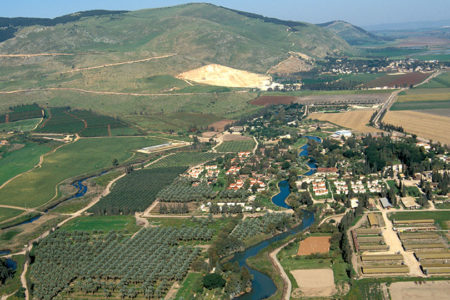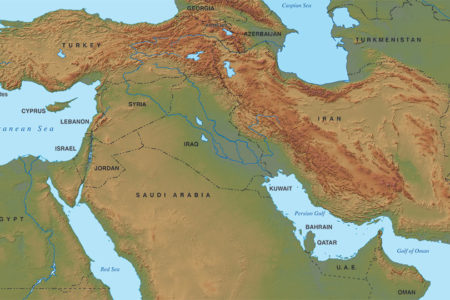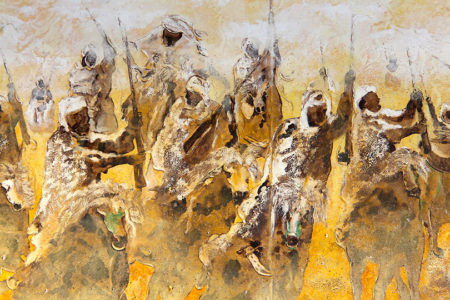Ezekiel the Man
Ezekiel, whose name means “God strengthens,” was born in 627 B.C. to a priestly family in Judah. His father’s name was Buzi (Ezek. 1:3). Ezekiel was married (24:18), owned a house (3:24; 8:1), and in 597 B.C. was exiled to Babylon. At age 30 he was called to be a prophet (1:1).
God commissioned Ezekiel to be a watchman to Judah, preach His Word concerning Israel’s apostasy, and warn of Jerusalem’s impending demise (3:17). He also told Ezekiel that his message would go unheeded: “The house of Israel will not listen to you, because they will not listen to Me; for all the house of Israel are impudent and hardhearted” (3:7; cf. 2:5).
Nevertheless, God instructed the prophet to stand squarely against all opposition and not to fear the Israelites, because he would receive the strength needed to confront their verbal and physical opposition (3:8–9).
It took great character, strength, and courage to stand boldly and speak God’s Word to a people suffering humiliation and exile at the hands of the wicked Babylonians.
His life was not easy. Ezekiel was confined to his house by the Holy Spirit, bound with ropes by his countrymen, and made mute by God until the Lord opened his mouth (3:24–27). When he did speak, he communicated the message God gave him using allegories, parables, and symbols. His illustrated prophecies must have seemed bizarre, but they got his countrymen’s attention and left an indelible impression.
Here are some of the things he had to do:
- Ezekiel sketched the layout of Jerusalem on a clay tablet, placed siege weapons around it, and erected an iron plate between the city and the invaders to depict the barrier that existed between God and sinful Israel (4:1–3).
- He reclined on his bed, bound with ropes so that he could not move for a number of hours each day for 430 days. These days represented the total number of years that the houses of both Israel and Judah sinned against God, from King Solomon’s reign until Jerusalem’s fall in 586 B.C. The binding with ropes meant that Israel would be unable to free itself from Babylon’s invasion (vv. 4–8).
- Ezekiel took specific ingredients and baked bread over a fire of cow dung to symbolize Israel’s defilement. He ate only measured amounts for 390 days to prophesy of the impending famine during Babylon’s siege of Jerusalem (vv. 9–17).
- He shaved his head and beard, then weighed and divided the hair into three parts to show that Judah would be destroyed in three ways: by famine, sword, and dispersion (5:1, 12).
- He packed his belongings as the people watched, dug through the wall of his house, climbed through with belongings in hand, and covered his face so he would not look on the land. His action was a sign to Israel of its coming deportation and captivity (12:1–11).
- The Lord told Ezekiel to shake when eating and to tremble with fear when drinking water to symbolize the anxiety and despair Israel would feel when the Babylonians stripped the land, leaving it desolate (vv. 17–20).
- He was to preach against Jerusalem, Solomon’s Temple, and the land of Israel while picturing God as a swordsman and Babylon as His sharp, polished sword to slaughter the righteous and wicked alike (21:3–4, 19). During his message, the prophet groaned with a broken heart in bitter grief, symbolizing the great emotional stress that would accompany Israel’s demise (v. 6). Then Ezekiel struck his hands together, portraying the ferocity with which Babylon would destroy Jerusalem (v. 14).
- Ezekiel was to record the date (now known to be January 15, 588 B.C.) when Babylon laid siege to Jerusalem. At the same time, he was to utter a parable, instructing the rebellious house of Israel to cut up choice pieces of meat and bone and boil them in a cauldron of water. These boiling elements symbolized the fire of God’s wrath that would consume Jerusalem. On that same day, Ezekiel’s precious wife died; yet God forbade him to mourn her death, for Judah was forbidden to mourn the loss of relatives and the beloved city of Jerusalem (24:1–27).
- Ezekiel took two sticks. On one he wrote Judah; on the other, He then joined the sticks together, symbolizing that the 12 tribes would someday be reunited as one nation in their land (37:15–22).
It can be said of Ezekiel that he was a man of character, strength, courage, and boldness, who faithfully performed all God commanded him to do.







